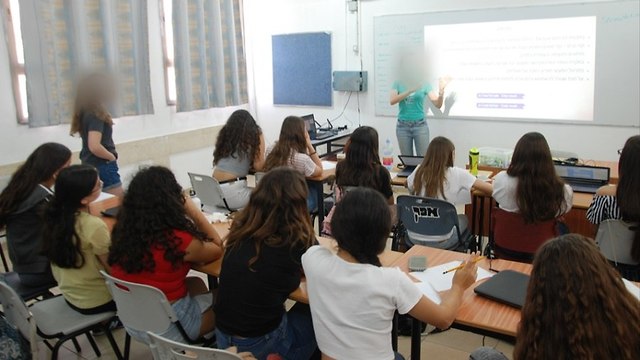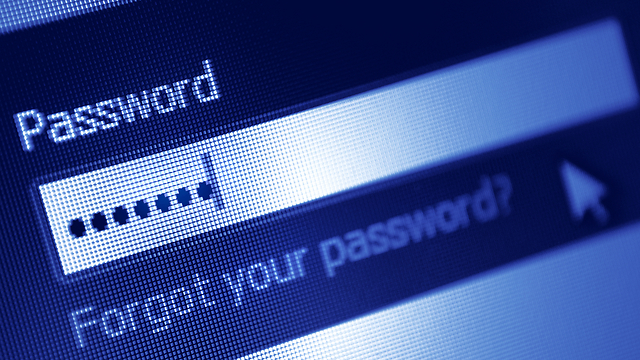
Educational program trains teen girls for cybersecurity jobs
CyberGirlz, a program that prepares Israeli teens to enter the cutting-edge field of cybersecurity, aims to close the gender gap in an industry where women only make up 11% of the workforce; program founder: 'if we want equal representation, then we need to start at a young age.'
Five years ago, Tali Ben-Aroya walked into a room at a technology company in the United States and realized that among the 30-odd entrepreneurs she was the only woman.
Eager to address the imbalance, Ben-Aroya founded CyberGirlz, a prestigious initiative that encourages and prepares Israelis of high school age to enter the cutting-edge field of cybersecurity.
“It wasn’t the first time I was the only woman in a room (with people in the tech industry), but it was the first time in my life that I felt being a minority actually matters and makes everything much harder,” Ben-Aroya recounted to The Media Line.
Each year, CyberGirlz—a program that is part of the Rashi Foundation’s Cyber Education Center—hosts a special summer camp for dozens of teens, the goal being to train and ultimately recruit the next generation of women for the hi-tech sector as well as the Israeli army’s elite cyber units.
“We’re trying to expose the girls to computer science but in a way that they can relate to so that they can see how (the skills) can help them fulfill their dreams,” Ben-Aroya explained. “Girls in middle school don’t tend to choose STEM (science, technology, engineering and mathematics), computer science or cyber security (careers). I realized that if we wanted to make a change and if we want (equal representation), then we need to start at (a young) age.”
At the CyberGirlz camp, held this year near Afula in the north, dozens of teens met with army experts, went on industry tours and attended workshops.
“In this program I met women who serve in the army in (elite) technology units,” Shahar Ohana, a 17-year-old participant, told The Media Line. “That really inspired me to be more successful.”
The 2017 Global Information Security Workforce Study—carried out jointly by the Executive Women’s Forum, the (ISC)2 and the Center for Cyber Safety Women—found that women make up only 11 percent of cybersecurity professionals globally. This has contributed to there being some 300,000 cyber positions currently unfilled in the US alone. In fact, the shortage of professionals is so severe that those who complete their technical training are virtually guaranteed a job.
“There is zero percent unemployment,” Marian Merritt, the Lead for Industry Engagement at the US-based National Initiative for Cybersecurity Education (NICE), told The Media Line. “So someone who embarks on a path towards working in cybersecurity is guaranteed to not only have interesting and (well-paying) work for the near future, but also be in an area where they can influence the world in a positive way.”
NICE, which works with the US Department of Commerce, offers a number of mentorship programs for teens seeking to enter the world of cybersecurity. However, Merritt believes the key to addressing the issue of female under-representation in the industry must begin at home.
“The reason women are a little less interested in cybersecurity has to do with their awareness of these careers; they very often don’t know anybody with this kind of job. Their teacher does not talk to them about these careers; their parents certainly don’t talk about it either. So I would encourage us to start with parents," she explained.
Though Israel has one of the world’s most advanced cybersecurity industries, one of its largest companies, Israel Aerospace Industries (IAI), is finding it difficult to recruit qualified candidates.
“Having good professional people is very rare,” Camila Edry, Director of Cyber Projects at Elta-IAI, told The Media Line. “There is a huge shortage of good cyber personnel all over the world.”
The scarcity impacts a number of important fields, such as healthcare, with cyber-attacks and leaked personal medical information having become a pressing problem.
Triventures, an Israeli venture capital fund, is trying to change that.
“We’re very interested in cybersecurity for healthcare,” Michal Geva, Founder and Managing Partner of Triventures, asserted to The Media Line. “Healthcare is one of the most attacked sectors. In recent years, roughly 200 million electronic health records were hacked in the United States alone.”
Getting women involved through educational programs like CyberGirlz could end up changing the face of this crucial industry. “We need everybody, boys and girls, to enter cybersecurity careers,” Merritt concluded.
Article written by Maya Margit
Reprinted with permission from The Media Line















